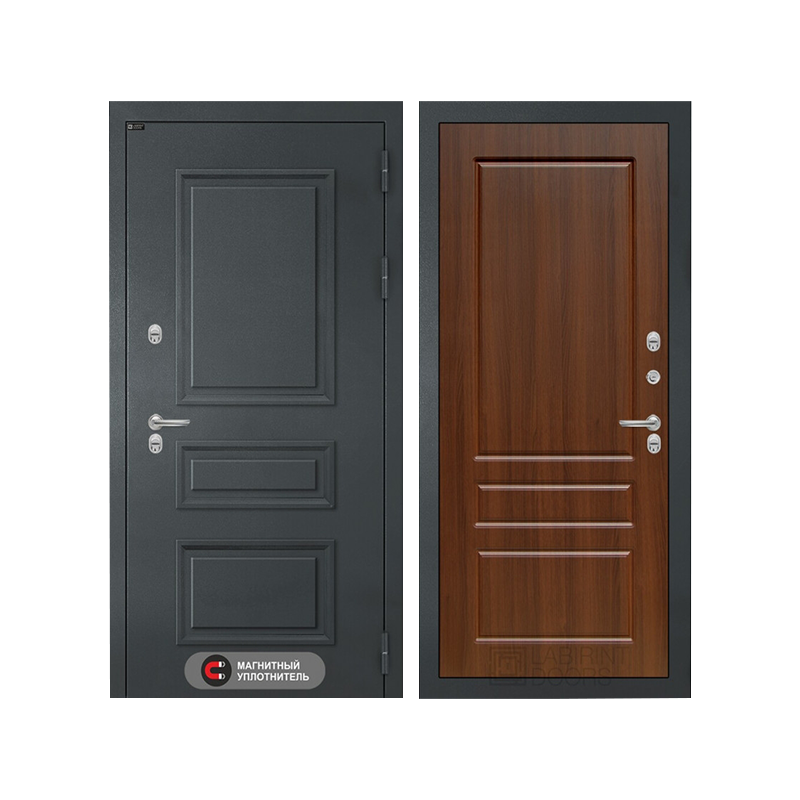Didn't find the product you like?
We gonna help you find matched one fast
Didn't find the product you like?
We gonna help you find matched one fast


+86-13967452036
Armored doors are seeing increased demand across both residential and commercial sectors. Designed to protect against unauthorized entry, armored doors combine durable materials with advanced engineering to offer an effective barrier in high-risk areas.

Applications in Residential, Commercial, and Industrial Settings
Armored doors are increasingly being specified for both high-end residential properties and commercial buildings, particularly in urban areas where security risks are higher. Homeowners seeking to protect their families and possessions from break-ins and other threats often opt for armored doors due to their robust construction and resistance to forced entry. These doors are commonly used for main entrances, vaults, and secure rooms within the home.
In commercial settings, armored doors are being utilized in banks, government buildings, data centers, and other locations requiring high levels of security. Their ability to resist physical attacks, including attempted break-ins and natural disasters such as fires or earthquakes, makes them ideal for protecting sensitive information, financial assets, and valuable equipment. Similarly, industrial facilities, warehouses, and military installations are increasingly relying on armored doors to maintain secure perimeters and protect against unauthorized access.
Design and Material Advancements
The development of armored doors has come a long way, with innovations in design and materials improving their performance. Modern armored doors are crafted using a combination of high-strength steel, composite materials, and specialized coatings that enhance both security and durability. These materials allow the door to withstand a variety of physical threats, including impacts, drilling, and cutting tools commonly used in forced entry attempts.
In addition to traditional steel constructions, some armored doors are designed with advanced composite materials that offer similar levels of protection while being lighter and more aesthetically appealing. This combination of strength and design flexibility enables manufacturers to offer products that cater to different customer preferences, whether for utilitarian or architectural purposes.
Integration with Smart Technology
Another growing trend in the armored door market is the integration of smart security features. Modern armored doors can be equipped with advanced locking systems that offer biometric access, keyless entry, and remote monitoring capabilities. These added features provide an additional layer of convenience and control, allowing property owners to manage access permissions from their smartphones or computers.
Some armored doors are also designed with alarm systems that trigger upon unauthorized entry or tampering, adding an extra level of security. These integrated technologies are increasingly appealing to tech-savvy consumers and businesses seeking to enhance their security systems with innovative solutions.
Environmental and Sustainability Considerations
Manufacturers of armored doors are exploring ways to reduce their environmental impact. Many are using recycled materials in the production process, particularly for the steel and metal components, which helps minimize resource use and energy consumption. Additionally, manufacturers are focusing on producing long-lasting products that require minimal maintenance over time, further reducing waste and the need for frequent replacements.
While armored doors are primarily known for their protective qualities, they are also being designed with energy efficiency in mind. Some models are equipped with thermal insulation to improve energy conservation in buildings by reducing heat loss and preventing drafts. This makes armored doors a more sustainable choice, particularly for homeowners and businesses looking to improve their building's energy efficiency.
Conclusion
Armored doors are becoming a cornerstone of modern security practices, offering durability, protection, and peace of mind for homeowners, businesses, and industrial operations alike.